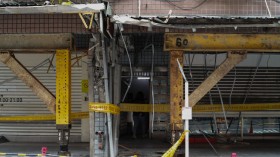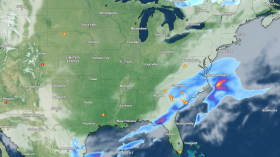If there's a sample from space, whom does it belong to? It usually is the government's property unless it was mishandled and auctioned by mistake.
Last year, a bag of moon dust samples from the Apollo 11 mission was mistakenly auctioned due to improper handling and labeling. NASA confiscated the bag but the bidder filed a case to gain back custody of the samples. However, a judge ruled that Nancy Lee Carlson, who bought the sample, is the rightful owner.
The samples in question are historic remnants from the Apollo 11 mission when Neil Armstrong and Edwin Aldrin first landed on the moon. Armstrong collected the moon dust upon touchdown using a special bag. It was supposed to be a piece of the moon meant for analysis here on Earth, according to CBS.
The controversial sample was purchased, apparently by mistake, but authorities only realized it when Carlson brought it to the Johnson Space Center for authentication. NASA confiscated it since saying that the sample is a property of the government.
Read Also: Will NASA Send Astronauts to the Moon in Its Next Lunar Mission?
The bidder from Illinois bought the bag of moon dust for $995 last 2015. The bag is labeled "Lunar Sample Return" during the auction, which made it clear that the bag being offered contains elements from the moon.
NASA confiscated the bag but the bidder filed a case in order to gain back what she believe is rightfully hers. NASA officials handed back the samples, following a court order at the Johnson Space Center. The priceless sample is now considered a property of a private citizen. Carlson purchased the samples through bidding in 2015.
"It's what every collector wants. You want to find the thing that's super special," Christopher McHugh, Carlson's lawyer, said in a statement.
Reports say that Carlson is not new to collecting space memorabilia. She was an avid space items collector, according to her lawyer. A Houston judge ordered NASA to return the samples to Carlson who is still deciding what steps to do next.
Read Also: NASA Reacts to SpaceX Announcement of Its 2018 Manned Moon Flight
© 2024 NatureWorldNews.com All rights reserved. Do not reproduce without permission.

![Origin of Life: Discovery of Lava Being a Building Block of Life Hints 'Humans Have Volcanic Origins' [Study]](https://1471793142.rsc.cdn77.org/data/thumbs/full/70262/280/157/50/40/origin-of-life-discovery-of-lava-being-a-building-block-of-life-hints-humans-have-volcanic-origins-study.jpg)
![Great White Sharks Observed for the First Time Changing Their Behavior in Different Marine Environments [Study]](https://1471793142.rsc.cdn77.org/data/thumbs/full/70251/280/157/50/40/great-white-sharks-observed-for-the-first-time-changing-their-behavior-in-different-marine-environments-study.jpg)


